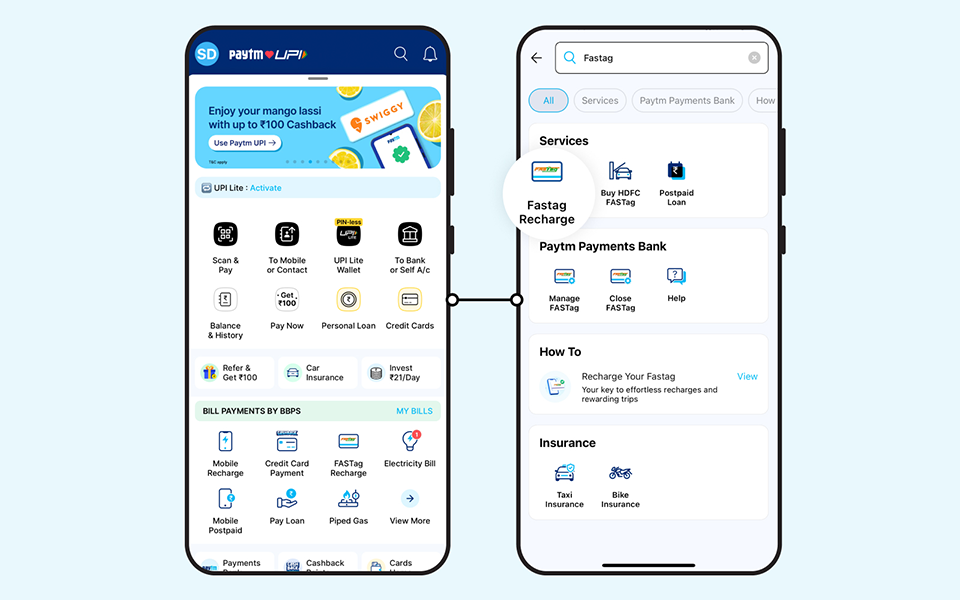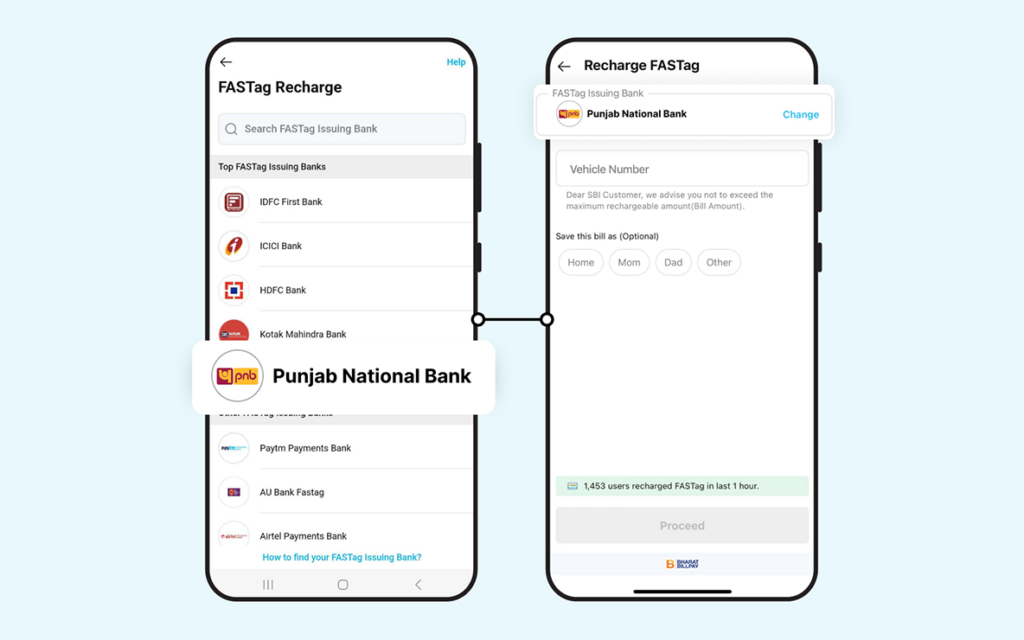A Punjab National Bank FASTag lets you pay tolls without waiting in line. But to keep using it smoothly, you need to top it up regularly. You can do this easily with apps like Paytm or through the PNB app. In this blog, we’ll show you how to recharge your PNB FASTag online in simple steps.
How to Recharge Punjab National Bank FASTag on Paytm?
Step 1: Open Paytm app on your device
Step 2: Choose one of the following options:
- Select the ‘FASTag Recharge’ option on the Paytm homepage.
- Use the search bar to find and select the ‘FASTag Recharge’ option.
Step 3: Select ‘PNB Bank’ as your FASTag issuer bank.

Step 4: Enter your vehicle registration number.
Step 5: Click on the ‘Proceed’ option and enter the desired recharge amount.
Step 6: Choose the mode of payment from options like Debit Card, Credit Card, Net Banking and UPI.

How to Recharge Punjab National Bank FASTag on PNB App?
Step 1: Open the PNB Bank app.
Step 2: Navigate to the FASTag section within the app.
Step 3: Look for the option to recharge your FASTag account.
Step 4: Enter your vehicle registration number.
Step 5: Choose the desired recharge amount.
Step 6: Select your preferred payment mode from the available options.
Step 7: Complete the payment to recharge your FASTag account.
Step 8: Once the recharge is confirmed, the amount will be added to your Punjab National Bank FASTag account.
What Are the Benefits of Recharging FASTag on Paytm?
- Paytm accepts various payment methods, such as credit cards, debit cards, net banking, and UPI, offering flexibility in payment.
- Enjoy exclusive deals and discounts with each recharge on Paytm.
- Recharging your FASTag on Paytm is a quick process, completed within seconds.
- Receive regular notifications and alerts for all your transactions.
- Easily track all your transactions directly within the app.
- There aren’t any hidden fees or extra costs on Paytm.
- Link multiple FASTag accounts to your Paytm app.
- Recharge FASTags for others using your Paytm app, making it convenient for family members or friends.
In conclusion, recharging your PNB FASTag on Paytm is a quick process that takes just a few seconds. Additionally, you can benefit from exclusive deals and discounts while having the flexibility to choose from multiple payment options that suit your preferences. With regular updates on your FASTag transactions, you can stay informed and ensure seamless toll payments.
Disclaimer: This blog is here to make complex processes easier to understand. However, please be aware that information might become outdated or change over time, or updates may occur. As a result, there might be some differences in the information provided. We do our best to keep everything up-to-date, but we recommend verifying information on official websites for accuracy.

